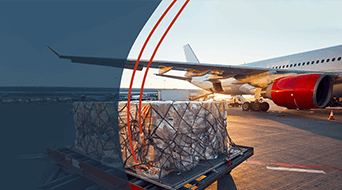How To Choose Freight Shipping Company For Your Business
Choosing the right shipping company for your business is a critical decision. Whoever you choose, will control the last critical step in fulfilling orders — transporting goods you've produced for customers. Making a wrong choice could seriously impact efficiency, reputation, or success altogether, so it's important to carefully consider your options and choose wisely.
Here are some tips that can help you make a smart choice for your freight shipping.
Types of Freight Carrier Services
The type(s) of product(s) you produce and the size of your freight are the primary determinants of the kind of freight service you need. Start your selection process by familiarizing yourself with the types of freight carriers:
Full truckload (FTL)
FTL freight means reserving an entire truck for your delivery. It's faster because your cargo goes directly from point A to B.
Partial truckload
Partial TL is for mid-sized shipments measured by their volume.
Less-than-truckload (LTL)
Your package is transported along with other LTL shipments in the same truck. It costs less, but transit time is longer because the shipment goes through multiple hubs instead of straight from point A to B.
Intermodal rail freight
This cost-efficient option combines train transport for the longest distance with truck transportation for the last miles to the final destination. Be sure to check out the difference between intermodal and multimodal freight modes.
Air freight
This is often the fastest transport mode, but is likely to cost more than the usual FTL or partial truckload service.
International ocean freight shipping
If you need to ship to Canada, Mexico, Asia, etc., this is the most cost-efficient alternative for international freight, but slower than air freight.
Expedited freight
The expedited freight option moves freight faster than LTL or even FTL service. But, it's not the same as shipping with a Guaranteed Delivery date.
Depending on the freight carrier, they likely offer more than one freight shipping option above.
What's the right type of freight company for my needs?
Many carriers are limited in the types of freight they can carry or the particular service accommodations they can provide. So, start your selection process by answering some questions to narrow down the kinds of shipping companies you can consider for your purposes:
- What are you shipping? Are your freight items fragile, hazardous, oversized, awkwardly shaped or otherwise in need of special handling?
- How large or small are your shipments? How much weight and volume are you shipping per freight load? Do you need FTL service for full truckloads or just a fraction of that cargo space?
- Where are you sending your shipments? Do you need local, interstate, international North American or overseas freight service?
- What particular accommodations do you need? For example, do you need pickups and deliveries indoors? Do you ever need urgent shipping service? Are your shipments hazardous or temperature controlled?
- What facilities, equipment, tools, and materials do you have for shipping? Do you need a freight service that can compensate for deficiencies in your shipping operations?
- Do you need packing, warehousing or other services? Do your shipments need to be crated? Palletized?
Taking time to get answers to the above questions before the first time you use a new carrier can save you much more time and inconvenience later. You'll learn which freight companies have the expertise, quality commitment, flexibility, and track record to be entrusted with transporting your goods to your customers.
How can I find the best freight company?
There are essential questions based on your business's needs that you should have answered by those freight carriers you're considering before you agree to use their services:
- What is the carrier's delivery range? What are the geographic limits of the freight carrier's shipping operations?
- Is the company legally licensed and state registered? Confirm that the freight carrier has a business license and is registered with the state(s) in which it operates.
- Do they have experience with your freight type? When choosing a freight shipping company, be sure they have the knowledge and experience to handle regular shipments of your items requiring special handling.
- Can they provide the accommodations you need? Will your team need loading service, packing service, interim storage space or other special freight-related support services.
- How much are their delivery costs? Look for good shipping rates, but prioritize finding a good value (A 3PL provides greater savings and value because of the collective buying power of vast numbers of customers).
- Can they handle a variety of shipment types? Choose a freight company that handles various kinds of shipments with little disruption, so you'll have a good prospective shipping partner that supports your business's growth.
- How does their freight tracking system work? Find out if you'll be able to track shipments and how the carrier will provide updates and notifications about delivery delays and other issues.
- Are they committed to communicating as needed? Ask how their customer service contact system works, especially during a search to locate lost freight.
- How does the freight company's delivery pace compare to its competitors? How fast and reliable are their delivery times in contrast to other carriers?
- Do they offer convenient risk management? Ask what reporting technology the carrier provides for viewing their delivery time track record. For example, in the Unishippers' TMS, you can compare carrier track records of prompt deliveries.
When is it time to use a 3PL?
Choosing the right 3PL provider gives you a widely expanded range of choices of carriers that fit your business's needs. Your 3PL service makes it quicker and more convenient for your team to manage all your company's shipping needs. That includes both outbound and inbound, domestic and international. You'll also have a single point of contact with your 3PL. For freight items that require special care, your 3PL makes sure your goods get delivered as expected.
When your business is paying too much for LTL shipping, it's time to compare rates for shipping directly through your freight company to see how much you can save through a 3PL.
Access the best freight carriers, service options and rates with Unishippers. Increase efficiencies with more than 75+ high-performing local, regional, and national LTL freight carriers at your service. This expansive network provides you with virtually every possible alternative on lanes and timelines. Save freight costs with the purchasing power of the ever-growing customer base we serve, currently scaled to over 108,000+ shippers.
For more information about Unishippers, reach out for a free shipping consultation!


